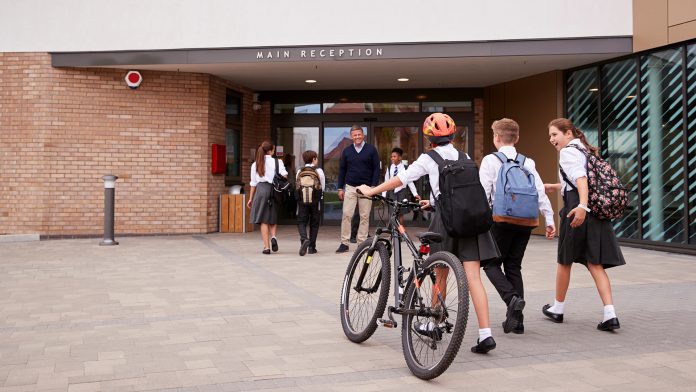
An NHS-funded programme delivering services for mental health in schools has made significant progress in its first three years but could still improve, according to a new study.
According to research from the University of Birmingham, the programme has been positively received but has also faced considerable challenges. These difficulties centre around supporting children and young people with special needs and the retention of staff.
The first support teams for mental health in schools in England were introduced in January 2020. These teams aim to help staff in schools promote emotional well–being for pupils and support young people with mild to moderate mental health issues.
Services for mental health in schools have been well received
The programme is co-led by the Department of Health and Social Care, the Department for Education and NHS England. An estimated 400 teams will be created by April 2023, supporting around three million children aged five to 18 across England.
The researchers assessed the setting up and delivering mental health in schools in the first 25 areas. Their findings include survey data from almost 300 schools, interviews with 132 people involved in the launch of the service, and focus groups with children and young people. The full findings have been published in the NIHR Journals Library.
“Overall, children and young people who had contact with a mental health support team reported an overwhelmingly positive experience. Mental health services in schools and colleges are facing increased pressure, particularly following the pandemic, and the programme has significant potential. But teams may find it difficult to sustain activities focusing on promoting wellbeing, given the increasing demand for mental health support,” said Lead researcher Dr Jo Ellins.
Feedback from the schools has suggested that staff feel more confident talking to children about mental health issues. School staff have also said that access to advice and support has become easier. The researchers also reported improved relationships between different agencies, such as education providers and mental health services.
Areas for improvement in mental health support
On the other hand, concerns were raised about the poor suitability of cognitive behaviour therapy (CBT) in schools. The majority of schools welcomed investment for in-house mental health support, but some expressed frustration that the service was primarily focused on mild to moderate mental health issues.
Long waiting times for children with more severe problems were also raised as a concern. The researchers also found that practitioners spent most of their time supporting children with mental health problems, rather than working with teaching and other school staff.
“Our findings suggest that the gap between the support that mental health support teams are providing and the criteria for accessing specialist help may be widening as a result of the COVID-19 pandemic. Schools and colleges, in particular, were concerned about the lack of available support for children and young people whose mental health needs fell between these services,” said Professor Nicholas Mays from the London School of Hygiene & Tropical Medicine, a co-author of the report.
“It’s excellent to see that services for mental health are having a positive impact, giving staff more confidence, improving access to advice and support, and strengthening relationships between schools and mental health services,” added Mental Health Minister, Maria Caulfield.
“This research shows there is room for improvement which I hope will be taken onboard as the number of mental health support teams will increase to almost 400 by April 2023. These will cover three million children and young people – part of an extra £2.3 billion a year investment into mental health services,” she concluded.

























